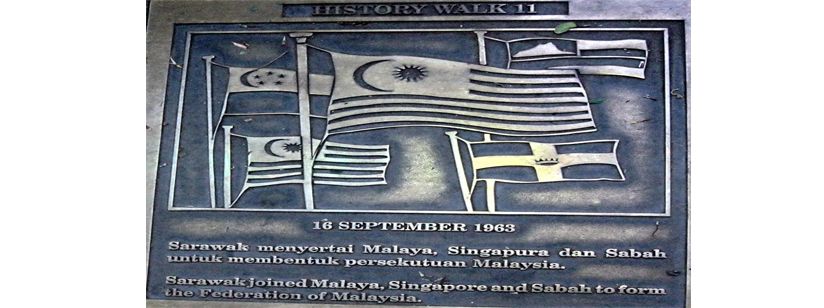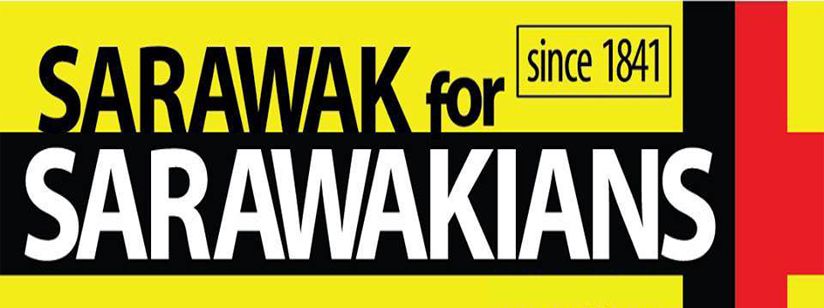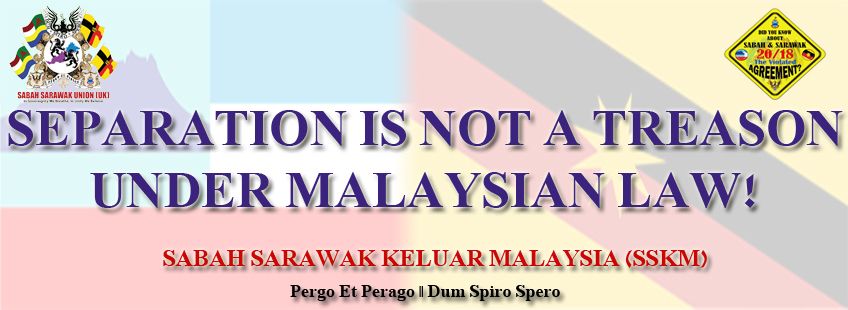Monday, 28 September 2015
Autonomy without accountability won’t help Sabahans and Sarawakians, analysts say
KUALA LUMPUR, Sept 27 — As Putrajaya opens up to greater leeway for Sabah and Sarawak to manage their state affairs, pundits warn that the interests of the people of Borneo may be jeopardised unless there’s a mechanism to check and balance this autonomous power.
Political observers acknowledged that granting autonomy to the two states is in line with what was initially agreed to under the Malaysia Agreement when the country was formed in 1963, but stressed that the erosion of their rights was as much the doing of state leaders as it was the fault of the federal administration.
“The problem is not so much a lack of autonomy. If you compare to other states, relatively Sarawak has autonomy. Of course it has reduced over the years but what have the state leaders been doing to help the ordinary Sarawakians?” said Universiti Kebangsaan Malaysia’s Dr , who used the country’s largest state as an example.
Under the 1963 deal, Sabah, Sarawak, Malaya and Singapore were supposed to have come together as equal partners to form Malaysia.
Singapore, however, set out on its own after just two years, while Sabahans and Sarawakians have long complained that the original pact has not been respected by the federal administration.
Faizal stressed that in the case of Sarawak, state leaders can’t point the finger at their federal counterparts in many of the long-standing problems facing their constituents, such as the matter of native customary rights (NCR) land as it falls squarely under state jurisdiction.
“Who has failed to recognise NCR rights of the people? It’s not federal leaders, it’s the state leaders.
“If they fight for autonomy alone without restructuring the state? Basically that will give state leaders a monopoly over the lives of the people,” he said.
Universiti Malaysia Sarawak’s Dr Arnold Puyok echoed Faizal’s sentiments, stressing that calls for autonomy must come in tandem with an administrative revamp that affords better checks and balances to the powers of state leaders.
“Autonomy yes, but it must be accompanied by a special mechanism to prevent abuse of power. For me, it is autonomy equals accountability,” he said.
Dr Oh Ei Sun of the S. Rajaratnam School of International Studies in Singapore was less optimistic of the possibility of structural reform in either state, which he said are afflicted by the “resource curse” where the abundance of natural resources feeds greed.
He noted that if a resource-rich state continues to suffer a “lack of democracy”, corruption is unavoidable regardless of whether it is federally ruled or an autonomous region.
“But the opportunity to push for autonomy doesn’t come by often, so they should grab it whenever plausible!” he said.
Despite the clamour for autonomy by Sabahans and Sarawakians, Faizal pointed out that the onus falls on the people of the two states to keep a level head and make sure their leaders agree to be held to account when the time comes.
“People have gotten emotionally caught up in fighting for it, but I would argue that people overlook a lot of fundamental problems.
“When emotion takes over reason, people don’t see the bigger picture,” he said.
Source: The Malay Mail Online
Time to let Sarawak and Sabah decide what is best for them
PETALING JAYA: Leading the charge in Sarawak is the Chief Minister himself, Tan Sri Adenan Satem, who says Putrajaya-led policies have not kept faith with the spirit of the Malaysia Agreement and the rights and needs of the state have been neglected as a result.
This sentiment is echoed in Sabah, and it is obvious to many observers that there is a growing demand in both states for greater autonomy to be given to Kuching and Kota Kinabalu.
This is not an overnight phenomenon. Over the last few years, this sentiment has been articulated in many forums and over the internet. Clearly there has been a growing awareness of local identity among Sarawakians and Sabahans, and while cries of “Sarawak for Sarawakians”, for example, have not taken a distinctly anti-Putrajaya tone, they are at the same time an assertion by people in the two states that they, and not the federal government, are better placed to look after their own interests.
The federal government is aware of this rising tide of unhappiness and has pledged to rectify errors of the past and bring more development to the two states. The Prime Minister himself has made many trips to the states to promise more money and more autonomy for the state governments.
But critics of the federal government already point out that what Datuk Seri Najib Razak is promising is nothing new. They have heard this refrain many times before, especially during the run up to a general election or when the federal government is under pressure from the Opposition. But the neglect has continued, year after year, decade after decade.
Critics of the federal government focus on four main points. First, they argue that Sabah and Sarawak did not join the nine states of the Federation of Malaya to form Malaysia. Rather, they joined the entity known as the Federation of Malaya to form Malaysia in 1963, and therefore, have a status that is different from the states in the peninsula. However, they argue, Putrajaya has regarded them as having the same status as each of the nine states, which is wrong.
Other criticisms of Putrajaya are focused on the issues of immigration, tariff and finance. Under the terms of the founding Agreement, entry into the two states needs the approval of the state governments. In the case of Sabah, clearly the state government has limited or no control over the influx of illegal immigrants from Indonesia and the Philippines.
Under the 1963 Agreement, Sabah and Sarawak would also retain control over its own finance, tariff and taxation. However, what has since happened is that the federal government has assumed total control over economic issues in the two states.
In June, Adenan repeated Sarawak’s request for a 20% petroleum royalty. The figure is 15% more than the current 5% that Sarawak and Sabah receive annually.
His request for autonomy in education has also received widespread support from Sarawakians and also academicians from the peninsula.
Since the 1970s, education policies have been determined by the federal government, but many of these do not conform to the wants or needs of the people in Sabah and Sarawak.
The sense of disdain towards federal management has now entered politics. A “Halau Parti Malaya” campaign was founded to kick out any peninsular-based political party from the Borneo states.
Umno, MCA and MIC of the Barisan Nasional coalition are all directly related to the peninsula, as are PKR, DAP and PAS of the former Pakatan Rakyat coalition.
DAP has established a foothold in both states. However, compared with elsewhere in Malaysia, the party in Sarawak and Sabah has been given a certain degree of independence in decision-making.
“Can you imagine that there is not even a highway in Sabah or Sarawak? In the 11th Malaysia Plan, the Prime Minister mentioned a Pan-Borneo highway and that has been going on for years. But it has never been built,” says Zairil Khir Johari, the DAP MP for Bukit Bendera in Penang.
Zairil says the two states should have autonomy over many areas which they currently do not have. These include education, healthcare and welfare.
People have been voting for state governments, expecting the new government to provide better facilities. The fact is, the two state governments have little control over their affairs, he says.
He calls for greater decentralisation, and says greater autonomy should be given to the two state governments to empower them. More importantly, he says, there should be revenue sharing, as currently, their taxes all go to the federal government and nothing is returned to Sarawak or Sabah.
UK-based Borneo rights activist, Doris Jones, is a strong proponent for greater autonomy for Sabah.
According to Jones, the government has long sidelined the existence of the 20/18 points memorandum, without which there would have been no Malaysia.
According to her, the federal government has violated several points under the agreement. This includes immigration, education and finance.
Jones highlights that the people of Sabah and Sarawak have long been practising English as the medium of instruction, and they want the language to remain such.
Critics have pointed out that Sabah and Sarawak are the richest states in Malaysia, yet 52 years after the formation of Malaysia, they remain the poorest.
For political analyst Prof Datuk Dr Mohammad Agus Yusoff, a lot of the grieviences have been caused by differences in perception over the Malaysia Agreement.
According to some critics, the Agreement was supposed to be reviewed once every 10 years – and it has not happened.
Prof Agus says that while this statement is true, the blame should be put on previous state leaders who did not raise the issue. He adds that a different understanding of the Agreement happens when there are linguistic misunderstandings.
The debate, according to him, is whether Sabah and Sarawak formed Malaysia as equal partners with Malaya and Singapore, or whether they joined Malaysia as equal partners of other states in Malaysia.
Agus argues that while it is a painful fact that many Sabahans and Sarawakians remain poor, the blame should not be put on the federal government alone. “They should also point fingers at their local leaders whom they voted in to run the state. These leaders failed to deliver on their promises,” he says.
Source: The Ant Daily
Catalonia vote: Separatists claim pro-independence mandate
Catalan separatist parties say their victory in regional elections on Sunday gives them a mandate to push for independence from Spain.
The Madrid government has reaffirmed its opposition to a vote on secession, noting that nationalists failed to get a majority of Catalonia's popular vote.
The main separatist alliance and a small pro-independence party won 72 of the 135 regional parliament seats.
Despite their parliamentary majority, separatists got 47.8% of votes cast.
Catalonia has 7.5 million people and provides about one-fifth of Spain's national output (GDP).
'Yes to independence'
"Catalans have voted yes to independence," Catalan regional President Artur Mas told cheering supporters.
"We have a clear, absolute majority in the Catalan parliament to go ahead," Mr Mas added.
His "Junts pel Si" (Together For Yes) coalition has vowed to implement a "roadmap" to achieve an independent Catalan state within 18 months.
The future of Catalonia is expected to be a crucial issue in Spain's general election in December.
The turnout of 78% was a record for a regional vote in Catalonia.
A spokesman for Spain's ruling conservatives, the Popular Party (PP), argued that the separatists had "failed" by not securing a majority of votes.
The PP's Pablo Casado said "this election should serve to end the independence debate once and for all".
Junts pel Si won 62 seats. It can secure a parliamentary majority by combining with the far-left separatist CUP party, which got 10 seats.
Pro-independence Catalans argue that their region gets an unfair deal, contributing too much tax to Madrid in return for insufficient state investment. In terms of GDP theirs is the richest region in Spain.
Analysis: BBC's Tom Burridge, Barcelona
The result was more ambiguous than the positive rhetoric suggests. The pro-independence camp continues to say they are ready to break away from Spain, even in the face of strong opposition from the Spanish government.
But they know that would be controversial and complicated. In truth, their aim is still to get a legally-recognised referendum.
So they will continue to pile the pressure on the government, safe in the knowledge that a Spanish general election is less than three months away.
A more fractured political landscape at the national level suggests there will either be a change in who holds power, or at least the position of the governing PP will be weakened. And that might lead to a change of stance over the Catalan question in Madrid.
Read also: Catalonia vote: Pro-independence parties win elections
Read also: Catalonia vote: Pro-independence parties win elections
Source: BBC
Victorious Catalan separatists claim mandate to break with Spain
Separatists on Sunday won a clear majority of seats in Catalonia's parliament in an election that sets the region on a collision course with Spain's central government over independence.
"Catalans have voted yes to independence," acting regional government head Artur Mas told supporters, with secessionist parties securing 72 out of 135 seats in the powerful region of 7.5 million people that includes Barcelona.
The strong pro-independence showing dealt a blow to Spanish Prime Minister Mariano Rajoy, three months before a national election. His center-right government, which has opposed attempts to hold a referendum on secession, has called the separatist plan "a nonsense" and vowed to block it in court.
Spain's constitution does not allow any region to break away, so the prospect remains highly hypothetical.
The main secessionist group "Junts pel Si" (Together for Yes) won 62 seats, while the smaller leftist CUP party got another 10, according to official results.
They jointly obtained 47.8 percent of the vote in a record turnout of 78 percent, a big boost to an independence campaign that has been losing support over the last two years.
Both had said before the vote that such a result would allow them to unilaterally declare independence within 18 months, under a plan that would see the new Catalan authorities approving their own constitution and building institutions like an army, central bank and judicial system.
Addressing supporters of Junts pel Si in central Barcelona, Mas said a "democratic mandate" now existed to move forward with independence.
"That gives us a great strength and strong legitimacy to keep on with this project," Mas told the exultant crowd, which chanted "in-inde-independencia" and waved secessionist flags.
Albert Llorent, a taxi driver from Barcelona who had come to celebrate, said the result was one of historic proportions.
"What I think, what I feel, is that I belong to the best possible nation in the world. Long live Catalonia," he said.
CONSEQUENCES?
The vote in Catalonia, Spain's second-most populous region, is widely expected to influence the course of the Spanish general election in December.
Spain's two dominant parties - the ruling People's Party and the opposition Socialists - lost tens of thousands of votes compared with the last election in 2012, boding ill for their national ambitions, although the PP suffered a much deeper setback than its rival.
Anti-austerity Podemos also registered a disappointing score at 9 percent, sharply down from last May's nationwide regional and local elections.
Among parties opposed to independence, pro-market Ciudadanos, often cited as a national kingmaker, emerged as the only winner as it jumped to 18 percent of the vote.
Despite the separatist victory, analysts believe the most likely outcome of the election will be to force a dialogue between Catalan and Spanish authorities.
"Many have voted for Junts pel Si even if they don't favor secession because they saw the vote as a blank cartridge... and a way to gain a stronger position ahead of a negotiation," said Jose Pablo Ferrandiz from polling firm Metroscopia.
Opinion polls show a majority of Catalans would like to remain within Spain if the region were offered a more favorable tax regime and laws that better protect language and culture.
While investors do not see secession as an immediate material risk, financial markets may react negatively on Monday.
The gap between Spanish five-year bond yields and the higher yields on the Catalan equivalents has been hovering near its widest point in two years in the run-up to the vote.
Read also this article: Catalan separatists win election and claim it as yes vote for breakaway
Read also this article: Catalan separatists win election and claim it as yes vote for breakaway
Source: Reuters
Catalan separatists predicted to win absolute majority in regional elections
Junts pel Sí and CUP parties, which are expected to win up to 79 seats in 135-seat parliament, have promised to declare independence unilaterally.
Separatists were poised to win control of Catalonia’s regional government on Sunday, after exit polls suggested a result that could plunge Spain into a political crisis by forcing Madrid to confront an openly secessionist government at the helm of one of its wealthiest regions.
In an election that saw a record-breaking voter turnout, an exit poll by the Catalan broadcaster TV3 suggested that the nationalist coalition Junts pel Sí (Together for Yes) was on track to win 63 to 66 seats, leaving them just shy of the 68 seats needed for an absolute majority in the 135-seat parliament.
The far-left pro-independence Popular Unity Candidacy, known in Spain as CUP, was on track to win 11 to 13 seats, making the anti-austerity party the kingmaker in Catalonia’s new parliament. The two parties together received 49.8% of the vote, according to exit polls.
After attempts by Catalan leaders to hold a referendum on independence were blocked by the central government in Madrid, Artur Mas, the head of Catalonia’s regional government, turned the elections into a de facto plebiscite on the issue. If separatists won a majority of seats in the election, Mas pledged to lead a transitional government that would begin the process of seceding from Spain.
Sunday’s elections were billed as one of the most important votes in the region’s history, as voters queued for hours to cast a ballot on whether Catalonia should break away from Spain. Regional authorities said they expected the turnout to hit record highs, noting that turnout reached 63% with two hours left until polls closed, an increase of 7% over the same time period in the 2012 elections.
The probable result means Catalonia is now on a collision course with the central government, as any move towards independence will be blocked by Spain’s conservative governing party, the People’s party (PP). The Spanish prime minister, Mariano Rajoy, has called the push for independence “nonsense” and vowed to use the full power of the country’s judiciary to block any move towards independence.
In recent years, Rajoy has repeatedly turned to the country’s constitutional court to close down moves towards secession, backed by the Spanish constitution, which does not allow regions to unilaterally decide on sovereignty.
The PP recently gave Spain’s constitutional court the power to sanction elected officials and civil servants who failed to comply with its rulings.
As the bill, which imposes fines of up to €30,000 (£22,000) and suspensions from office, was presented before MPs, Xavier García Albiol, the PP leader in Catalonia, left little doubt that it was aimed at quelling Catalan separatism. “This is a very clear message for those who want to break up Spain: the joke is over,” he said. The PP is expected to use its absolute majority in parliament to have the bill approved in the coming days.
But the first hurdle for Catalan separatists will be to find common ground between Junts pel Sí, a coalition of parties from the right and left as well as grassroots activists, and the CUP.
“It’s not going to be easy,” said Josep Ramoneda, a political analyst. CUP has stated that the process of independence would only be legitimate if they won a majority of seats and votes. They have objected to the idea of Mas leading the transitional government, pointing to a string of corruption scandals that have plagued his party, Democratic Convergence, in recent years. CUP has also pushed for a more immediate break with Spain, rather than the 18-month timeline envisaged by Junts pel Sí.
Any alliance with CUP may also modify the route to independence envisioned by Junts pel Sí. Mas has said the transitional government’s first step would be a declaration, made within days of taking office, proclaiming the beginning of the process of breaking away from Spain.
From there, the priority of the government would be to hold talks with Madrid and European institutions, Mas said during the campaign. The focus of the talks would be issues such as the management of shared borders, the energy grid and the Ebro river basin.
Mas said the regional government was committed to making the split as amicable as possible. “If the yes vote wins today, the attitude of the Catalan public institutions will be to sit down at the table with the Spanish institutions, with the European commission, with the European countries, and try to deal with this big issue in the most positive way for all of us, not only for Catalonia,” Mas said as he cast his vote.
If Madrid refuses talks with the region, Mas warned that Catalonia could retaliate by walking away from its share of the public debt, accounting for roughly a third of Spain’s total debt.
Mas’s government plans to begin drafting a constitution for Catalonia, hoping to draw on citizen participation to inform its content.
The creation of state structures will also begin – from a diplomatic service to a central bank – to be ready in time for the proclamation of a new Catalan state. “We have some state structures right now,” Mas said during the campaign, pointing to the region’s public healthcare, education and police service. “But we lack others.”
Plans for the first of these new state structures, a regional tax agency modelled on that of Sweden and Australia, was halted by Spain’s constitutional court earlier this month after the court agreed to hear a challenge lodged by the central government in Madrid.
The same fate could befall many of the state structures envisioned by Mas. With just days left before polling, Rajoy said Madrid would continue to use the courts to block any move towards Catalan independence. “We would go to the constitutional court. And that’s the way it is. Full stop,” he told the broadcaster Onda Cero.
Source: The Guardian































































